Two shocking developments at Ferrari in the past week have rocked Formula 1. On Saturday Fiat Chrysler announced Sergio Marchionne’s sudden exit from all his roles, including responsibility for Ferrari’s F1 operation.
Many feared the worst. Sadly, on Wednesday the worst was realised when Marchionne’s death was confirmed.
Ferrari announced the details of the necessary changes made at the top of the team on Saturday. Dieter Rencken analyses what this new leadership, forced on Ferrari for the most regrettable of reasons, could mean for it and the sport.
Sergio Marchionne had planned to step down from Fiat Chrysler in April next year, a plan centred around a full restructure of Ferrari ahead of him running the company full-time. The Italo-Canadian was never one to step away from challenges.
True, he was not the most popular man in the global motor industry, nor the easiest touch – as F1 and Ferrari folk regularly discovered, oft to their chagrin – but there was universal respect for his achievements. These included saving two major car companies from bankruptcy, and floating Ferrari.
The arrival of a new management team at Ferrari comes at a crucial stage in F1’s evolution, for the sport faces swingeing changes to its sporting and technical regulations, while its political and economic landscapes have shifted dramatically since Liberty Media acquired control of F1’s commercial rights. These are expected to undergo seismic change during the next 30 months as F1 ramps ahead of its “new era” from 2021-onwards.Once able to concentrate fully on Ferrari – initially until the end of 2021 – Marchionne planned to totally revamp Ferrari’s Gestione Sportiva, effectively (re)adopting the earlier business model put in place by his predecessor, Luca di Montezemolo, whom he displaced in 2014.
Under this structure the Piedmontese, then Ferrari president, controlled Ferrari’s production and racing divisions via a director responsible for each, but retained direct control for the Scuderia’s political and commercial activities. Thus Marchionne saw himself as president/CEO overseeing a sporting director, in turn with heads of department reporting through him, while the boss would handle the off-track heavy lifting.
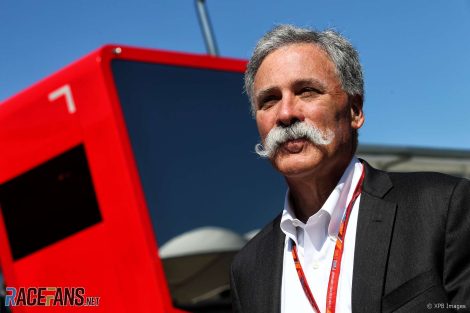
Mekies would then replace Binotto as head of technical, with Marchionne relieving the Swiss-Italian of FIA and Liberty stuff. Will that now come to pass?
An intriguing rumour doing the rounds before Marchionne’s health deteriorated was that he planned to assemble a team of investors to mount a share buy-back, taking Ferrari private. “He sees himself as a latter-day Enzo Ferrari,” said a senior paddock figure who knows Marchionne well, “which fits his image as a working-class Italian made good.” Marchionne’s father was a policeman before emigrating to Canada.
In such a scenario he would have had a more personal interest in Ferrari’s commercial activities – which may explain why he played hardball with Liberty over post-2020 negotiations. Another source, who referred to Marchionne as the “Ultimate Alpha Male”, said that he “dragged out [F1] negotiations because he can, ultimately he knows the value of Ferrari to F1.” But does Camilleri?
Forget not that Marchionne threatened to pull Ferrari from F1 unless the team retained existing bonuses and veto rights. Simultaneously he rejected Liberty’s plans for budget caps and standardised / prescribed technologies. Equally, the word in the paddock was that Marchionne feared Porsche’s mooted entry, and delayed discussions in an attempt to reduce Stuttgart’s runway to F1 entry.
Advert | Become a RaceFans supporter and
There are, of course three sides to every F1 story – Side A, Side B and Truth – but whatever the actual plans, these are now unlikely to come to fruition, certainly not as Marchionne had imagined them. This will have profound effects on the whole of F1, whether at Liberty/FIA levels, the sporting/technical landscapes or outlook for customer teams – it was Marchionne who, for example, engineered the Sauber/Alfa Romeo partnership.
Once the gravity of Marchionne’s situation became evident, Exor NV, the Agnelli family-controlled, Dutch-registered holding company for FCA (30%), CNH (27%) and Ferrari (23%) plus entities such as Economist Group and Juventus FC, moved swiftly.
On Saturday the directors met under the chairman of John Elkann, the heir favoured by grandfather Gianni Agnelli, then announced a string of immediate executive changes.
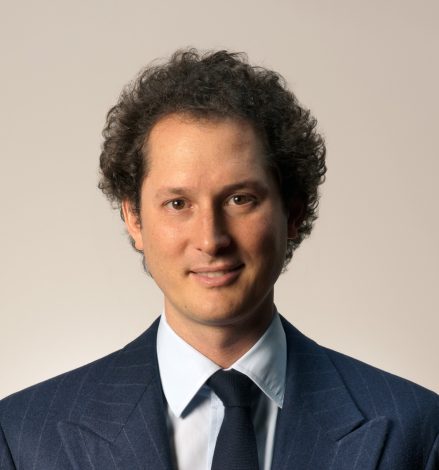
On the FCA and NCH sides, Britons Mike Manley and Suzanne Heywood assume temporary control respectively, ahead of board ratification. Now consider: Marchionne, as CEO of both FCA – including Alfa Romeo – and Ferrari, internally massaged a deal for Alfa Romeo to sponsor Ferrari-powered Saubers and for the quadrifoglio to feature on Ferrari’s F1 cars; Camilleri does not, for example, have such dual authority.
Equally, the Ferrari-Haas co-operation was authorised by Marchionne – albeit after initial discussions were initiated under Montezemolo – and who knows where Camilleri stands come renewal time at end-2020? True, he may wish to continue the arrangement; equally, he may decide two “grey Ferraris” aren’t good for brand image … who knows?
For that matter, Manley, a Jeep stalwart, may elect to take Alfa Romeo into WEC or WRC, or even purchase Sauber (or any other team).
What does the background of Ferrari’s new CEO tell us about him? After graduating from Lausanne HEC with economics/business administration degrees, the British educated Camilleri (63) worked as business analyst in the chemical industry before joining tobacco manufacturer Philip Morris International in a similar capacity in 1978 – around the time Marlboro began its Ferrari sponsorship.
His cosmopolitan outlook blended easily with PMI’s global brands, and he worked his way through the ranks with relative ease. Crucially, it’s said he met then-Marlboro sales manager Maurizio Arrivabene – now Ferrari team boss, and for many years sponsor representative on the F1 Commission – back then, and the two struck up an enduring friendship. Camilleri retired as PMI CEO four years ago, but remains non-executive chairman.
These Marlboro Man roots run deep: Marchionne served on PMI’s board, while Camilleri, currently supermodel’s Naomi Campbell’s beau, was reciprocally elected to the Ferrari board…and, of course, Ferrari’s 40-year commercial partnership with PMI, now used as an awareness platform for smokeless brands, was recently extended until end-2021 under Camilleri’s watch.

He will, though, need time to get both feet firmly under the table as he deciphers Marchionne’s five-year plan. That Ferrari is an emerging NYSE-listed company makes his task more complex, but he did not rise through the ranks of a controversial public company without having the necessary acumen.
Ferrari has headroom for 10,000 cars sold per annum – current volumes are 5,000 units annually in ‘traditional markets’ and 3,000 in emerging regions such as Asia – although Marchionne resisted temptations to increase volumes, and steered clear of the SUV sector – unlike Lamborghini, now under the management of ex-Ferrari team sporting director Stefano Domenicali, and rapidly gaining ground on Ferrari.
Who knows what strategy Camilleri will follow? Up volumes to 12,000; introduce SUVs to take on Bentley and the Rambo Lambo? Leave Gestione Sportiva, which led both F1 championships until the day after the upheaval, to their own devices while he gets a handle on Ferrari’s market segment?
Why not keep his mate Arrivabene in the hot seat, and Binotto in charge of technical until it’s time to focus on F1?
Advert | Become a RaceFans supporter and
Will Camilleri’s change Ferrari’s (anti) media policy, which sees team personnel restricted to making official appearances only, and then only under sufferance? This was said by team sources to have been introduced at the insistence of Marchionne in revenge for what he considered to be unwarranted criticism by certain sectors of the media. If Camilleri makes Ferrari more media-friendly that can only be of mutual benefit.
Under Camilleri’s chairmanship PMI moved into smokeless tobacco. Could he take Ferrari electric, and by extension out of fossil fuel motorsport and into smokeless racing, namely Formula E? Horror of horrors: could Ferraris of the future eventually be fully autonomous? Imagine the impact of that on F1.
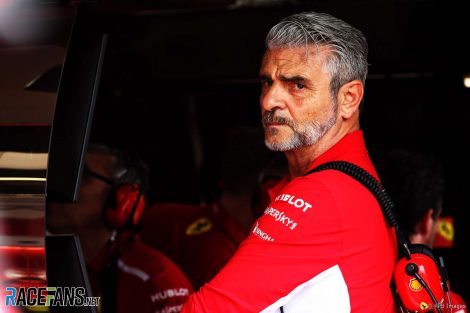
Elkann faces further challenges: Juventus recently signed football star Ronaldo for £100m at a time when Fiat plans to move production of some models from Italy to Poland – immediately sparking strikes by workers facing layoffs at Fiat’s main plant outside Naples. Against that background, F1’s current squabbles are kiddie stuff.
The reality is, though, that Camilleri will need to turn his attention to F1 sooner rather than later, for post-2020 regulations need to be completed and contracts signed. What does he do – fight tooth and nail to retain cutting edge technologies, inequitable bonuses and the veto as Marchionne seemed set to do, or surrender for the ‘good of F1’? Who knows how he will approach it – but whatever the outcome, it will affect F1.
The recent Ferrari/Sauber Kimi Räikkönen/Charles Leclerc swap stories are believed to have their roots in Marchionne’s impatience with the Finn; could Kimi yet keep his place in their 2019 F1 driver line-up? Camilleri may be inclined to go with the Marchionne flow until he has a grip on the team. And he surely has more pressing concerns than Ferrari’s second seat.
Right now anything, everything or even nothing is possible. That notion surely strikes fear into F1, for the unknown is the scourge of listed entities, and Liberty and Ferrari are both quoted companies. Fernando Alonso left Ferrari soon after Marchionne moved in at end-2014, opening the door to Sebastian Vettel, who could soon discover whether Camilleri is accommodating about solo crashes out of the lead, or not at all.
It is impossible to accurately predict what effect the arrival of a new regime will have on Ferrari, the Scuderia, and by extension, the future of F1. We will never know whether Marchionne would have pulled Ferrari out of F1 had negotiations not gone his way, or whether ultimately budget caps would have been acceptable to him. Would F1 have caved in the face of the nuclear option?
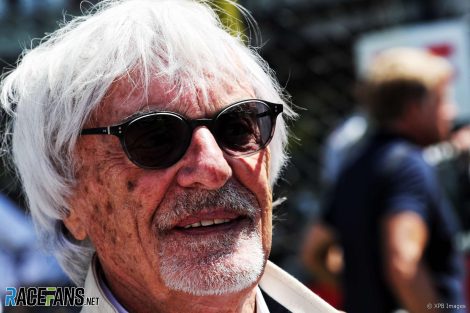
Can the newcomer get his feet comfortably under the table before then? Could it be that he calls on the one man who knows F1 intimately, a man whom Camilleri has had many high-powered dealings with since 1978 – Bernie Ecclestone – to advise and guide him during this crucial period? Imagine Bernie and Ferrari against Liberty. Don’t bet against it just yet.
In the interim our thoughts are with Sergio Marchionne and his family, friends and colleagues at their time of mourning. If it is any consolation, whatever Camilleri eventually decides is best for the future of Ferrari will have been largely informed by his predecessor.
Go ad-free for just £1 per month
>> Find out more and sign up
Follow Dieter on Twitter: @RacingLines
RacingLines
- The year of sprints, ‘the show’ – and rising stock: A political review of the 2021 F1 season
- The problems of perception the FIA must address after the Abu Dhabi row
- Why the budget cap could be F1’s next battleground between Mercedes and Red Bull
- Todt defied expectations as president – now he plans to “disappear” from FIA
- Sir Frank Williams: A personal appreciation of a true racer




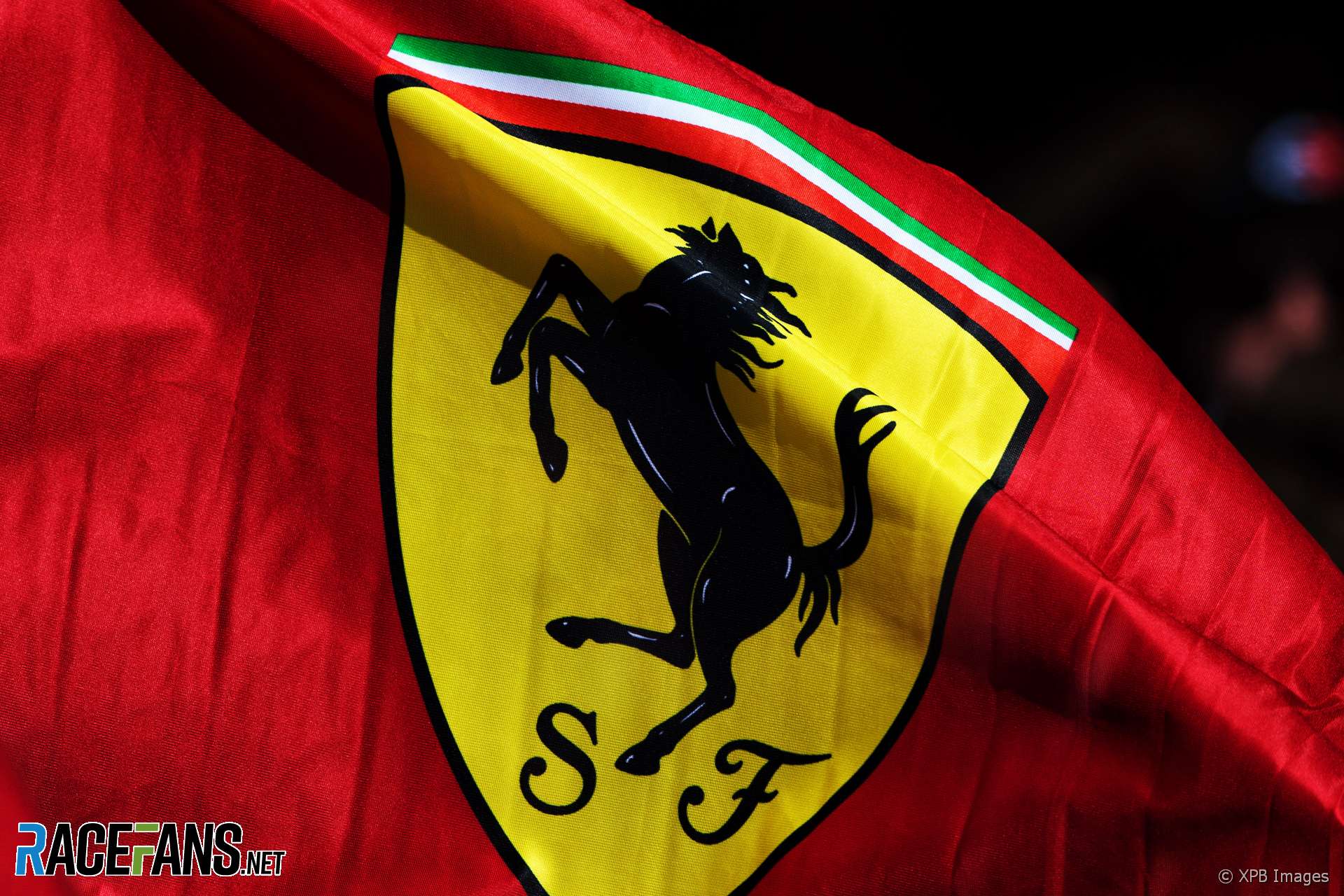
Jon (@johns23)
26th July 2018, 8:12
Going to be very interesting to see how this all plays out! Fantastic article.
Rest in Peace Sergio
ColdFly (@)
26th July 2018, 11:03
indeed, great article.
bernasaurus (@bernasaurus)
26th July 2018, 8:44
Wonderfully written Dieter, thank you.
Tango (@tango)
26th July 2018, 10:10
Seconded
Lums (@lums)
26th July 2018, 9:37
‘Rambo Lambo’ lol
This is why I love this site. Thank you Dieter, you are a star and don’t even know it. Thank you too Keith for making all this happen.
hamiledon
26th July 2018, 9:38
RIP Marchionne, great lost.
Shimks (@shimks)
26th July 2018, 10:21
Beautifully thought out article, @dieterrencken. The final bombshell idea of Camilleri bringing in Bernie is fascinating!!
Fabman (@fabman)
26th July 2018, 10:31
Great article and so well written , thank you Dieter
Jay Menon (@jaymenon10)
26th July 2018, 11:51
“Imagine Bernie and Ferrari against Liberty”
That sent a chill down my back!
Interesting times ahead. Would it be possible for Fernando to end up in seat number 2?
Lems
26th July 2018, 12:05
Very well written article @dieter. Interesting to see how this will pan out.
Tifoso1989 (@tifoso1989)
26th July 2018, 12:13
Thanks Dieter, a very well written article as usual that covered many details about Ferrari change of leadership and its impact.
On another note, it was rumored that Marchionne was determined to make Maserati return to F1, as he did with Alfa Romeo, throughout an alliance with Haas in 2019. Haas senior staff members were already informed about this possibility and discussions were scheduled to take part in the summer break. That would have granted him more political power with the control of three teams in the battle with FIA, from one side, over the regulations and Liberty Media, from another side, over the commercial rights and the future of the sport.
It seems very logical move since Alfa and Maserati were destined to a spin-off from FCA, à la Ferrari, in order to create more value for the two brands and the group as well and F1 according to Marchionne is the perfect marketing platform for the 2 luxury brands.
As for Maurizio Arrivabene, I think that his position is stronger than ever inside the team and he will not step down in favor for Laurent Mekies at least in the short/medium terms. Maurizio is also in the board of directors of Juventus ,the special private toy of the Agnelli’s, and have a strong relationship with John Elkann and Andrea Agnelli , Juventus President, who was trained by Maurizio himself at PM before working in Ferrari’s Marketing department.
Speaking of Juventus, it was suggested by Tuttosport even before the deal has come to public that the investment (350 million euro tax included in 4 years) was “blessed” by Exor and Marchionne since Ronaldo doesn’t currently have a car manufacturer in his portfolio of sponsors ( he has a brief deal in the past with Toyota if I’m not wrong) and FCA would benefit from his presence to promote their brands.
As for Camilieri, I have a bad feeling about him, as I said earlier he is known for keeping a low profile despite his role in PM and he was in charge of the settlement of the lawsuit brought against PM for the damage its products are making. He speaks 4 languages French,Italian,English and German and has been an aggressive defender of PM and smoking in general, though I am not surprised that he successfully dealt in the past with a man like Bernie.
Another question is what will Ferrari Mercedes relationship will be aftert Marchionne’s departure. Ferrari and Mercedes are strategically allied in terms of engine regulations, Dieter Zetsche lately confirmed that he spoke to Marchionne after the surgery and thought everything was fine. He said also that the two had reached certain fixed points on which they could work together, now the future in a big question mark.
Ju88sy (@)
26th July 2018, 14:07
Great read Dieter, appreciate the longer form articles (even if I did have to take ‘two bites’ due to being at work!).
Taimur (@invictus)
26th July 2018, 15:59
Gripping!
Fer no.65 (@fer-no65)
26th July 2018, 19:24
It goes to show that being the sort of bussinessman that controls everything, every move of such a huge empire, has good benefits in that it gives one man power to control the interests of its many companies at a faster rate, but also makes it all the more difficult to replace such a guy and position. Look how many people are filling Sergio’s roles, they are all different, with different backgrounds and certainly different interests, specially those personal.
It also shows what an important guy Sergio was, like him or not, he was a beast.